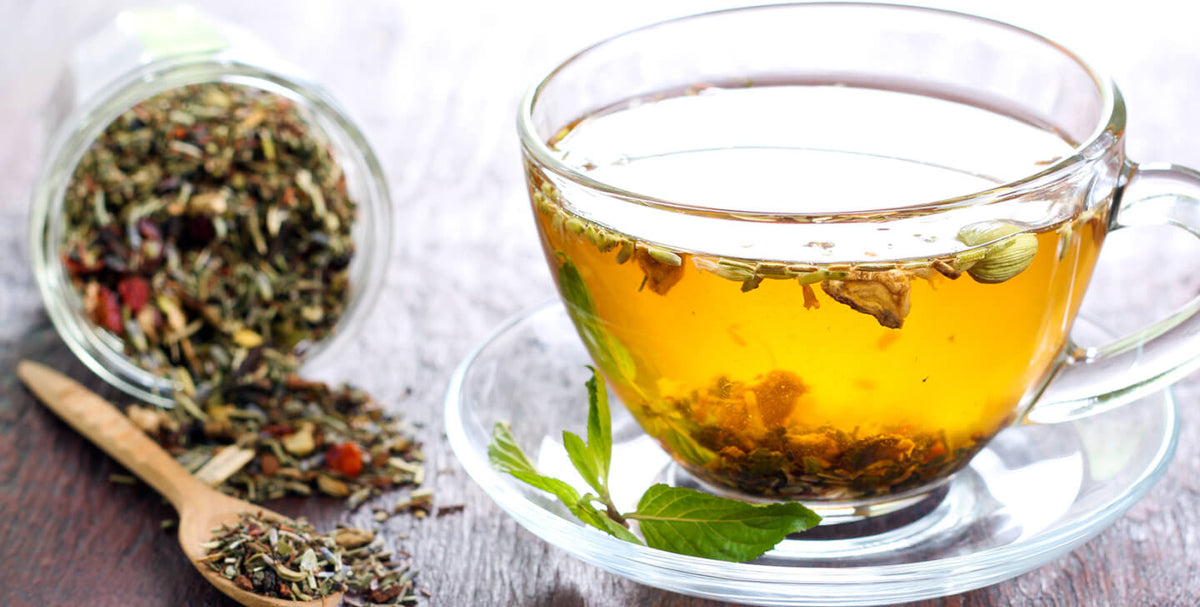The Health Benefits of Tea: Beat Stress and Boost Performance

Creating a healthy mind and body starts with you having balance in daily life so you can perform and feel your best. One problem people run into is juggling their training, family obligations, and work. As a result, they find themselves burning out and falling out of balance.
A key component of being successful is your nutrition. Even small changes in your diet can result in more energy and focus. Case and point: simply drinking more tea can yield big changes. Yes, tea. That is, according to Nada Milosavjevic, certified tea specialist, medical advisor to the U.S. Tea Association, MD, author, and host of our Spartan Up Podcast Sunday health series. She says that drinking more of the steeped stuff throughout the day can actually decrease stress levels, promote better sleep, and boost overall wellness.
We interviewed Milosavjevic to learn more about the many health benefits of tea and why it's so good for you and your training.
HOW TEA DECREASES STRESS & PROMOTES CALM
SPARTAN RACE: When it comes to complete health, stress is the main stickler for most people. Can adding tea to your diet really reduce stress?
NADA MILOSAVJEVIC: Tea offers a host of health benefits. In terms of stress reduction, there are several compounds in tea that help the body deal with stress. One of these is L-theanine, an amino acid that has a calming effect on the brain. Few items [including food] contain L-theanine so tea is a great source for this healthy and supportive compound.
SR: It seems as though even making tea is calming. Does the ritual of preparing it have any benefits?
NM: You're absolutely right that even the act of preparing, serving, and enjoying tea can be a calming and meditative process. With repetition, this behavior becomes a habit. This new habit rewires the brain so that every time you start preparing your tea, it sends a signal to the brain that it's time to relax.
SR: Are there any specific teas one should drink when meditating?
NM: Meditation should contain aspects that are enjoyable and resonate with each individual. With that in mind, the particulars of that meditative practice are deeply personal. So, choose a tea that you enjoy, whether it be a [caffeinated] tea (white, green, black, etc), or an herbal tea. Any meditative practice is meant to be repeated, grounding, regenerative and healing.
Related Link: 5 Meditations for Beginners
TEA & YOUR INSIDES: WEIGHT MANAGEMENT & THE GI TRACT
SR: Ok, so we covered the mind, but how can tea help with weight management?
NM: Tea (from the Camellia sinensis* plant) can support a metabolic process called "thermogenesis." Basically, this promotes fat metabolism and can help with weight management.
*Editor's note: Polyphenols known as catechins (also from Camellia Sinesis) have additional benefits shown to potentially reduce the risk of cardiovascular disease, cancer, and diabetes.
SR: Gut health has become an increasingly popular health trend. How can tea help support a strong gut microbiome?
NM: Tea contains hundreds of natural compounds, not all of which have been fully evaluated and researched. But, some of the compounds that have been elucidated in black and green tea show that they support healthy microbial networks in the gut. Your gut microbiome plays a role in immunity and is important for digestion and overall good health.
Related: 5 ways to eat more vegetables
HOW DRINKING MORE TEA BOOSTS RECOVERY
SR: How does drinking tea aid in recovery to enhance performance during training and racing?
NM: Tea can be restorative post-workout. It contains supportive antioxidants that assist recovery. Also, it's ultra-hydrating and counters the effects of dehydration. Tea also has a host of different minerals that include: potassium, calcium, phosphorus, and magnesium to name a few. Further, tea has an anti-inflammatory effect which can help with muscle recovery and promote healing.
SR: So much of our recovery happens when we sleep. How does incorporating tea into your daily life promote better rest?
NM: Tea’s amino acid, L-theanine, helps to calm the brain and can assist with down-regulating the body as you prepare for a good night's sleep. But, be mindful of the caffeine content in tea. In comparison to many caffeinated beverages, tea does tend to be on the lower end, containing anywhere from 20-60 milligrams of caffeine [a cup of coffee has about 95mg]. But it depends on how it is processed. If you are particularly sensitive to caffeine, you should try a decaffeinated version before bedtime, which will still contain the L-theanine and calming benefits.




